-
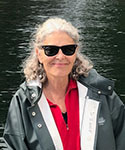 Nancy Postero, Professor of Anthropology and Co-Director of the Human Rights Program at UC San Diego and is the Co-Director of the International Institute at UC San Diego. My research examines the relation between race, politics, and political economy, focusing specifically on indigenous peoples of Latin America.
Nancy Postero, Professor of Anthropology and Co-Director of the Human Rights Program at UC San Diego and is the Co-Director of the International Institute at UC San Diego. My research examines the relation between race, politics, and political economy, focusing specifically on indigenous peoples of Latin America.
-
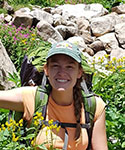 Nancy Turtletaub is a PhD student in the Anthropology Department at UC San Diego. Prior to beginning my doctorate in Anthropology, I completed my Master's in Latin American Studies at UC San Diego. My research looks at conservation projects and paradigms in Chilean Patagonia, the expansion of national parks, and the effects of the burgeoning eco-tourism industry. I seek to understand the role of market and state forces in these processes - how global capitalism is articulated to practices of conservation and the Chilean state's neoliberal presence in mitigating these relationships.
Nancy Turtletaub is a PhD student in the Anthropology Department at UC San Diego. Prior to beginning my doctorate in Anthropology, I completed my Master's in Latin American Studies at UC San Diego. My research looks at conservation projects and paradigms in Chilean Patagonia, the expansion of national parks, and the effects of the burgeoning eco-tourism industry. I seek to understand the role of market and state forces in these processes - how global capitalism is articulated to practices of conservation and the Chilean state's neoliberal presence in mitigating these relationships.
People
Faculty and Graduate Student Organizers
Faculty
-

Sarah Aarons
-
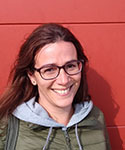
Matilde Córdoba Azcárate is a social anthropologist interested in questions of space, politics, ecology and global capitalism. I work as an Assistant Professor in the Communication Department and I am an affiliated faculty member at The Center for Iberian and Latin American Studies (CILAS), The Center for U.S-Mexican Studies, The Chicano/a Latino/a Arts and Humanities Program and the International Institute. At UC San Diego. My book Stuck with Tourism: Space, Power and Labor in Contemporay Yucatan (UC Press, Fall 2020) explores the moral, political, ecological, and everyday dilemmas that emerge when, as Yucatán’s inhabitants put it, people get stuck to tourism’s extractive grip. Contrasting labor and lived experiences at beach resorts, protected natural enclaves, historical buildings of the colonial past and maquilas for souvenir production, the book shows how tourism has become one of the leading forces organizing the predatory geographies of late capitalism. I am currently working on an edited collection on the Geopolitics of Tourism and interested in the dystopian futures fostered by the expansion of Chinese mega infrastructure projects in rural Latin America.
-
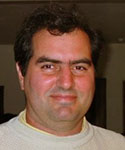
Paul Goldstein received his Ph.D. in 1989 from the University of Chicago and previously held a position in the Department of Anthropology at Dartmouth College. His teaching and research focus on anthropological archaeology, complex societies, Latin America and Andean South America. His research involves the study of how Tiwanaku civilization, the earliest state level polity that emerged in the important lake Titicaca region of the southern Andes, expanded, and collapsed (ca. 350-1000 AD).
-
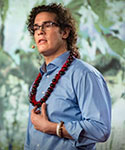
Keolu Fox Ph.D., Kānaka Maoli (Native Hawaiian) is an assistant professor at University of California, San Diego, affiliated with the Department of Anthropology, the Global Health Program, the Halıcıoğlu Data Science Institute, the Climate Action Lab, and the Indigenous Futures Lab. He holds a Ph.D. in Genome Sciences from the University of Washington, Seattle (2016). Dr. Fox’s multi-disciplinary research interests include genome sequencing, genome engineering, computational biology, evolutionary genetics, paleogenetics, and Indigenizing biomedical research. His primary research focuses on questions of functionalizing genomics, testing theories of natural selection by editing genes and determining the functions of mutations.
-
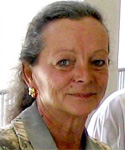
Christine Hunefeldt Frode, is an Associate Professor in the History Department where she has been teaching since 1990. She received her Ph.D. in Ethnology, Americanistics, and History from the University of Bonn, Germany in 1982. Her research focuses on Latin American history with an emphasis on Andean history, the lives of women, indigenous populations and slaves. Currently her research is centered in the Amazon Basin and the virtual reconstruction of its history.
-

Amy Kennemore
-
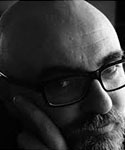
Luis Martín-Cabrera is the Director of the Latin American Studies program and an associate professor in the department of literature. He is currently working on a Digital oral History project called the Transandean Lithium Project. In this research he investigates the impact of lithium extraction in the indigenous communities of Argentina, Chile and Bolivia.
-
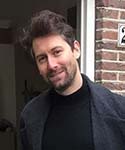
Manuel Shvartzberg Carrió is Assistant Professor in Urban Studies and Planning at UC San Diego. An architect and architectural historian, he researches histories and theories of architecture and geopolitics, particularly how modern architectural technologies and territorial infrastructures mediate regimes of settler colonialism, racial capitalism, and processes of decolonization. His recent work draws from Science and Technology Studies, Marxist and decolonial critical theories to think through how modern architecture operates in ecological, political, and economic terms.
-
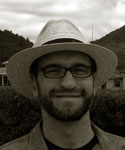
Matthew Vitz is an environmental and urban historian, specializing in modern Latin America. My book, A City on a Lake: Urban Political Ecology and the Growth of Mexico City (Duke 2018), tracks the environmental and political history of Mexico City and explains its transformation from a forested, water-rich environment into a smog-infested megacity plagued by environmental problems and social inequality. I am currently working on two projects. The first is a history of tropical development--tourism and coconut oil production--in and around Acapulco, Mexico, during a time of rising social conflict, state-sanctioned repression, and ecological breakdown. The second, "Imperiled Ecologies: Environmental Critique in the Age of Development," seeks to rescue an eclectic history of environmental thought and practice in 20th century Mexico and situate it at the intersection of global scientific networks producing ecological knowledge and the locally specific environmental transformations brought on by state-sanctioned capitalist growth.
-
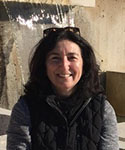
Elana Zilberg is Associate Professor in the Communication Department and affiliated faculty at the Center for Iberian and Latin American Studies, Center for Comparative Immigration Studies, and Ethnic Studies at UC San Diego. She is interested in questions of space, politics, water and civic organization. Her current research explores urban river revitalization movements in the US and extends prior interests in the production of space and urban built environment into the domains of urban nature, infrastructure, and environmental activism. She is the author of Space of Detention: The Making of a Transnational Gang Crisis between Los Angeles and San Salvador (Duke University Fall 2011) and Principal Investigator of The University of California Collaboratory for Ethnographic Design (CoLED).
Graduate Student Members
-

Taylor Brough
-

Carmel Farzaneh
-
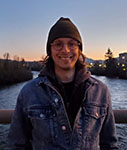
Sam Gaffney
Sam Gaffney is a PhD candidate in the Communication Department. His research focuses on energy infrastructures and the coal industry in Australia. Sam is currently investigating conflicts and contestation over investment in coal projects, the competing discourses and practices around a seemingly inevitable energy transition, and the production and management of choke points in global supply chains of coal. More broadly, Sam is interested in investigating how power is leveraged through and in opposition to infrastructural projects, and in tracing the probable futures entailed by designed solutions to fossil fuel reliance. In addition to pursuing his individual research, Sam has been helping to organize the Nature, Space, and Politics working group since 2019.
-
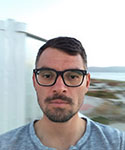
Michael Hillyer
Michael Hillyer is a graduate student in the Anthropology department at UCSD. He is an Linguistic Anthropologist whose work has focused on contemporary Yucatec Maya language activism on new media platforms. Currently, He is beginning work in the Baja California region with Kumiai speaking communities that focuses on international rights and cultural/ language revival. His interests include, Indigenous languages of the Americas, language revival, Indigenous sovereignty, transnational mobility, mediated identities and emerging (new) medias.
-
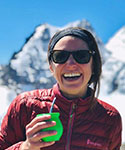
Sofia Lana is a thrid-year sociocultural anthropology student who analyzes climate change, receding glaciers, and how catastrophic discourses obscure ongoing resource extraction. Her research focuses on the relations between humans and melting glaciers in the Cordillera Real of La Paz, Bolivia, where extractive activities are emerging as glaciers retreat. In particular, she is interested in exploring the interplay of various actors- whether it is Aymara communities, scientists, miners or governmental institutions- who are claiming rights to a transforming landscape.
-
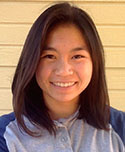
Jessica Ng
Jessica Ng is a PhD candidate at the Scripps Institution of Oceanography collaborating and organizing with Indigenous communities in the Andean Altiplano who are resisting groundwater lithium mining as the market for lithium batteries to store "renewable" energy grows. She is developing laboratory methods to reconstruct past groundwater levels as a way to quantify and contextualize how industrial extraction impacts groundwater availability for ecosystems and communities.
-

Christopher Rojas-moreno
-
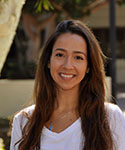
Paula Santa Rosa
Paula Santa Rosa is a PhD student in the Communication Department at UCSD. Her research currently focuses on left populism in Bolivia, specifically looking into the media regulation policies implemented during the Evo Morales administration (2006-2019). She’s interested in how these policies have transformed the Bolivian media landscape, and the political and cultural role of community radios and their differentiated relationships with the state. Through this research she explores the potentials and threats of left populism as a political strategy and reflects on the role of populism and community media as part of state-building/claiming projects.
-

Riley Taitingfong is a PhD candidate in the Department of Communication at UCSD and current President's Dissertation Year Fellow. Her dissertation engages feminist STS and ethnographic methods to critically analyze the development of an emerging genetic engineering technology known as gene drive, and attendant ethical implications for Indigenous communities.
-
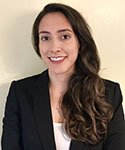
Marianinna Villavicencio
Marianinna is a PhD candidate who works on reproductive health, indigeneity, and human rights in Guatemala. Her work focuses on how women's understanding of reproductive practices and rights are impacted by religion, generational gaps, ethnicity, and socioeconomic status. She is interested in analyzing changing discourses of the body, family, and gender relations. Her research analyzes the daily interactions between healthcare professionals, NGOs, community health volunteers, and patients―categories that often overlap―in order to understand how reproductive health is negotiated at different levels.